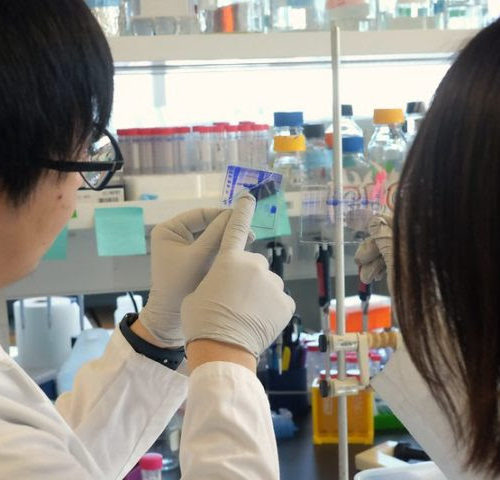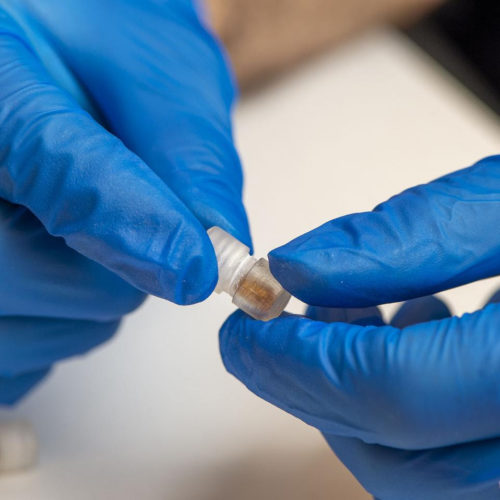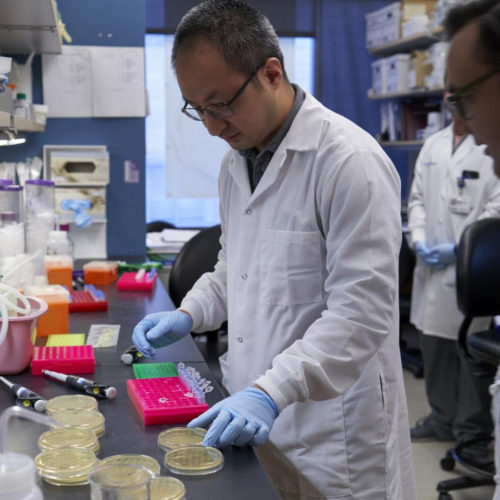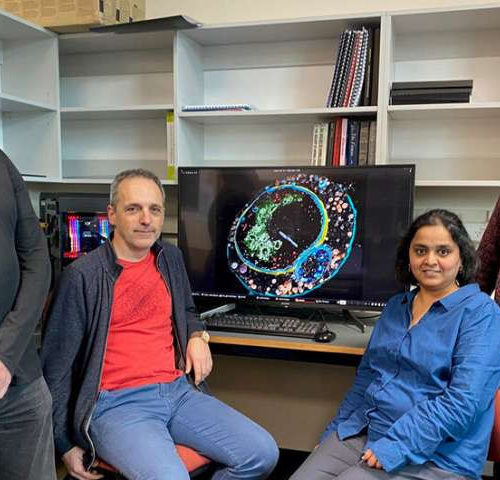Interview conducted by Emily Henderson, B.Sc. Professor Pockley among other researchers from the John van Geest Cancer Research Centre have recently developed a blood test for the detection of prostate cancer. News-Medical spoke to Professor Pockley to find out more! What provoked your research into the detection of prostate cancer? Why is there an urgent...
CAN BLOOD SUGAR CONTROL PROTECT AGAINST COVID’S WORST EFFECTS?
A new algorithm for monitoring glucose may help combat serious complications from COVID-19 in patients with diabetes or high blood sugar, researchers say. After preliminary observations of 200 COVID-19 patients with severe hyperglycemia, a new Diabetes paper sheds light on why high blood sugar may trigger worse outcomes in people infected with the virus. “THIS...
Tiny ThermBot returns contactless temperature readings in under a second
It’s never been more important to be able to quickly and accurately take your temperature, and the ThermBot provides that capability in a device that is smaller and smarter than other thermometers on the market. Compact enough to slip in a pocket or even put on a keychain, the ThermBot can be taken anywhere to...
Unlocking how cellular proteins control cancer spread
A new insight into cell signals that control cancer growth and migration could help in the search for effective anti-cancer drugs. A McGill-led study reveals key biochemical processes that advance our understanding of colorectal cancer, the third most common cancer among Canadians. Using the CMCF beamline at the Canadian Light Source (CLS) at the University...
Smartwatch Tracks Levels of Medication in the Body for Personalized Dosing
Researchers at the UCLA Samueli School of Engineering and the Stanford School of Medicine have developed a smartwatch that uses electrochemical analysis to track levels of a drug in the body by analyzing a patient’s sweat. The system could help with finding the correct drug and dose for a given patient in order to maximize...
Swallowing this colonoscopy-like bacteria grabber could reveal secrets about your health
ONCE SWALLOWED, THIS CAPSULE IS DESIGNED TO COLLECT BACTERIA THROUGHOUT THE GUT. A SCIENTIST UNSCREWS THE CAP TO RETRIEVE THE SAMPLE AFTER THE CAPSULE HAS LEFT THE DIGESTIVE SYSTEM. view more Your gut bacteria could say a lot about you, such as why you’re diabetic or how you respond to certain drugs. But scientists can...
No increased skin cancer risk with topical immunosuppressant ointments
BOSTON – Adults with the chronic skin condition atopic dermatitis can rest easy in the knowledge that two topical immunosuppressant medications commonly prescribed to treat the condition do not appear to increase the risk for the most common forms of skin cancer, despite package label warnings to the contrary, researchers from Massachusetts General Hospital (MGH)...
Preliminary study of 300+ COVID-19 patients suggests convalescent plasma therapy effective
American Journal of Pathology publishes efficacy results from Houston Methodist clinical trial HOUSTON METHODIST HOUSTON METHODIST PHYSICIAN SCIENTIST ERIC SALAZAR, MD, PHD, LOOKS ON AS HIS TEAM WORKS IN THE LAB ON CONVALESCENT PLASMA RESEARCH. view more CREDIT: HOUSTON METHODIST HOUSTON-(Aug. 12, 2020) – A preliminary analysis of an ongoing study of more than 300...
Singapore researchers discover genetic link to predict positive response to immunotherapy in patient
Singapore, 12 August 2020 – A Singapore team led by clinician-scientists and researchers from the National Cancer Centre Singapore (NCCS) discovered a genetic link to better predict treatment response for relapsed/refractory patients with natural- killer T-cell lymphoma (NKTCL), a highly aggressive form of blood cancer. The team performed whole-genome sequencing, to identify mutation in PD-L1...
Virus uses decoy strategy to evade immune system, research reveals
by University of Otago University of Otago researchers have learnt more about how viruses operate and can evade the immune system and are now using their discovery to help learn more about COVID-19. The recent research, led by Dr. Mihnea Bostina and Ph.D. student Sai Velamoor from the Department of Microbiology and Immunology and Otago...







